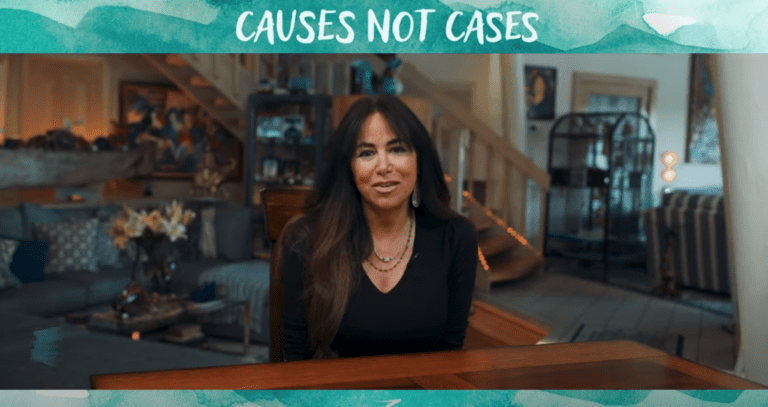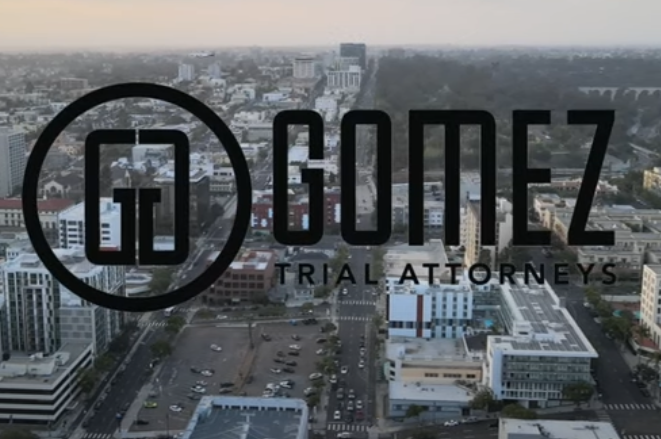Table of Contents
The brain is a complex and powerful organ. The National Institute of Neurological Disorders and Stroke cites the brain as “the seat of intelligence, interpreter of the senses, initiator of body movement, and controller of behavior… and the source of all qualities that define our humanity.” On top of all those incredibly vital activities, the brain also stores and recalls information.
When a blow or jolt to one’s head causes the brain to move, and to sustain damage within the skull, it is called a concussion. Memory loss is one of the most common symptoms experienced and is one of the sure signs that the injury sustained caused a concussion. The memory loss caused by a concussion may go away on its own or it can become a long-term side effect. The severity of the injury and proper care are important factors in memory recovery.
In most cases, symptoms resolve within three months, but can also last for a year or longer.
What Is a Concussion?
A concussion is a traumatic brain injury (TBI). Considered a mild injury because it is not life-threatening, it nonetheless has symptoms that are serious. Concussions are caused by a fall or blow to the head that causes the brain to move back and forth.
A concussion may cause loss of consciousness, but most people do not pass out. A person can experience a jolt to the head, misjudge its severity, and not realize they’ve sustained a concussion. It’s important to pay attention to any symptoms which can include:
- Headache
- Vision problems
- Nausea
- Dizziness
- Sensitivity to light
- Difficulty concentrating
- Trouble sleeping
- Memory loss
Concussions are ranked by severity.
Grade I
This is the mildest form of concussion with no loss of consciousness. If memory loss is present, it lasts for less than 30 minutes.
Grade II
This grade of concussion is marked by loss of consciousness for less than five minutes or loss of memory for between 30 minutes and 24 hours.
Grade III
This is the most severe level of concussion with loss of consciousness for more than five minutes or loss of memory for more than 24 hours.
Treated with proper medical care, rest, and medication, concussion victims can recover fully. In more serious cases and after multiple concussions, there can be long-term effects that can alter a person’s long-term health.
Leading Causes of Concussions
The most common causes of a concussion that can cause memory loss include:
- Falls
- Motor vehicle injury
- Unintentional strike by or against an obstacle
- Assault
- Sports
Why Does a Concussion Cause Memory Loss?
The process of making a memory is a more complex one than one might imagine. It takes several steps. If we use spending a day in Paris as an example, the brain first has to encode the experience. Then the memory gets consolidated while you sleep, then stores it piece by piece alongside memories the brain believes are related. A single memory of your vacation might be broken down into what your traveling companion said to you, what the Eiffel Tower looked like, and the way your cup of coffee smelled.
When the time comes to recall that memory, the brain must construct all those pieces together again and it takes many parts of the brain working together to do that. And, you have to be capable of paying enough attention in the first place to form the memory.
A concussion causes inflammation near the site of the injury causing a temporary breakdown of the cells in that area. Those injured cells cannot complete the functions that region of the brain usually does. If those cells encode new memories, they won’t be able to do so or won’t be able to do so as efficiently as they did prior to the concussion.
Concussion and Types of Memory Loss
Any type of memory loss caused by injury, illness, or psychological trauma is called amnesia. But it doesn’t look or act the same as amnesia portrayed in soap operas. There are several types of amnesia and a person with a concussion can experience one or multiple types of amnesia. When there is a loss of memory after a concussion it is called post-traumatic amnesia.
Post-traumatic amnesia is sorted into the following two broad categories.
1. Short-Term Memory Loss
Short-term memory loss is the inability to recall limited information for a short period of time. Our short-term memory is meant to hold small amounts of information in a readily available place so it can be used in the short term. Short-term memory issues leave concussion victims with difficulties at school or work as it interferes with the ability to fulfill tasks and obligations. Short-term memory loss due to a concussion has the potential to become a long-term disability.
Called anterograde amnesia, concussion victims with this type of memory loss can’t remember new information but can remember things and events that took place before their injury. According to the National Institutes of Health, anterograde amnesia is often one of the last functions to return after suffering a concussion.
Symptoms can include:
- Inability to remember conversations or events shortly after they occur. This often causes people to repeat themselves and ask the same questions over again.
- Inability to recall the names and faces of people they’ve met.
- Confusion about current events, dates, and times.
- Issues with related abilities such as speaking, writing, and reading.
A concussion victim with this type of memory loss can keep a journal, use planners, make notes, and download apps that can remind them of tasks such as upcoming appointments or medication schedules.
2. Long-Term Memory Loss
Long-term memory loss is the inability to remember prior events from days, weeks, or years before the event that caused the concussion. The opposite of anterograde, with retrograde amnesia, the concussion victim has a partial or full loss of things and events from before their injury but can make new memories.
Symptoms can include:
- Loss of memory of things or events that occurred before the concussion.
- Forgetting facts and general knowledge.
- Inability to remember names, faces, places, and dates.
- Inability to recall skills and abilities.
- Being able to recall very long-term memories that occurred during childhood.
The depth of retrograde amnesia depends on the severity of the injury. Fortunately, this type of amnesia returns progressively along with concussion recovery.
FAQs on Concussion Memory Loss
Can a concussion cause memory loss?
Not only can a concussion cause short-term and long-term memory loss, but memory loss is one of the symptoms medical professionals use to diagnose concussion.
How long after hitting your head can concussion symptoms start?
Some symptoms of a concussion may appear right away or hours afterward such as a headache or dizziness. However, for the majority of concussion sufferers, symptoms appear within the first seven to ten days.
How long does memory loss last after a concussion?
Short-term memory loss has the potential to last the longest depending on the severity of the injury to the brain. Most memory loss lasts anywhere from a few minutes to several weeks or months after the injury first occurred. Those who can’t remember the concussive event itself will likely never remember it as the brain did not store that memory in the first place. The only way to gain and store the facts surrounding the injury is to ask someone who was there or your medical professional to recount the event for you once able to maintain that information.
How do you fix short-term memory loss from a concussion?
For the first 48 hours activities that require thinking and concentrating should be limited. Some activities such as playing video games, doing schoolwork, reading, texting, and using a computer can cause symptoms to worsen.
After 48 hours, relative rest is recommended to allow the brain to continue to recover from the concussion. Relative rest is defined as limiting activities that require thinking and concentrating, but resuming activities such as taking a walk or having a friend visit. Some activity and the stimulus it produces can have a positive effect on the brain.
With memory loss in particular, rest is imperative. When the brain is overworked, it can’t devote enough energy to paying the attention needed to store new memories. Rest will provide the brain with energy to retain information. Sleep is also important because that is the time when the brain consolidates memories.
Research points to meditation as an effective practice post-concussion to help regain memory. Mindfulness, it reports, improves working memory and attention skills.
Using support to help you remember, such as writing things down on lists or using an app to set appointment alerts, are actually good brain exercises as the act of entering the things you need to remember helps your brain begin to remember.
No one diagnosed with a concussion should return to robust activity or sports without the approval of a doctor.
What To Do After Experiencing a Blow to Your Head
Minor concussions often go unrecognized, without diagnosis and treatment. Then, six months later, the injured person wonders why they are experiencing memory loss and other concussion symptoms.
Do not underestimate the importance of following up on any violent blow or jolt to the head as it is impossible to self-diagnose and symptoms may not become apparent right away. Seek medical attention for a proper assessment as long-term health repercussions can occur if a concussion is ignored.
If you are feeling confused or having memory issues, ask someone close to you to help monitor you and let you know if you are forgetting things or repeating yourself.
Post Concussion Syndrome
Most concussion victims improve within a short period of time. But there is a small minority for whom symptoms persist beyond the one- to two-month period in which all symptoms should have disappeared.
With PCS, long-term cognitive effects such as memory loss and focus can force people to withdraw from their usual physical, professional, and social lives. It’s even possible for new symptoms to develop. Some people require occupational, cognitive, or speech therapy. Some people experience depression or anxiety. It is estimated that post-concussion syndrome can last for a year or more. A combination of physical and cognitive therapy for severe PCS can help the brain return to more optimal functions.
How a Traumatic Brain Injury Lawyer Can Help
If you’ve suffered a concussion because of another person’s actions, an experienced attorney can help hold that person, business, or organization financially accountable. Unfortunately, even a minor concussion costs money. And, if you are experiencing post-concussion syndrome, the long-lasting and potentially permanent effects of your injury could limit your professional and social life. You will need medical care. You may need to take time off from work. You might need additional childcare so you can rest and recover.
You might have the right to compensation from:
- A vehicle accident in which the other driver was at fault.
- A property owner who failed to repair a broken sidewalk or failed to shovel their sidewalk of snow and ice.
- A sports coach or organization that failed to follow safety rules.
- A person who assaulted you.
A traumatic brain injury attorney can
- Investigate how the concussion happened to help establish legal liability
- Negotiate with insurance companies to get a fair settlement for you that allows you the time and resources needed for a full recovery
- Working with medical experts to establish needs for a full recovery
- Litigating your legal claim for damages against parties who refuse to offer fair and reasonable compensation for physical pain, medical complications, emotional suffering, and potentially lessened quality of life.
The traumatic brain injury attorneys at Gomez Law stand ready to help you recover the restitution you deserve so you can concentrate on your recovery. Our team of compassionate and competent attorneys is nationally recognized and ready to go to work for you.
Contact us for a free consultation in which we can help you understand your options and what the next steps are.







